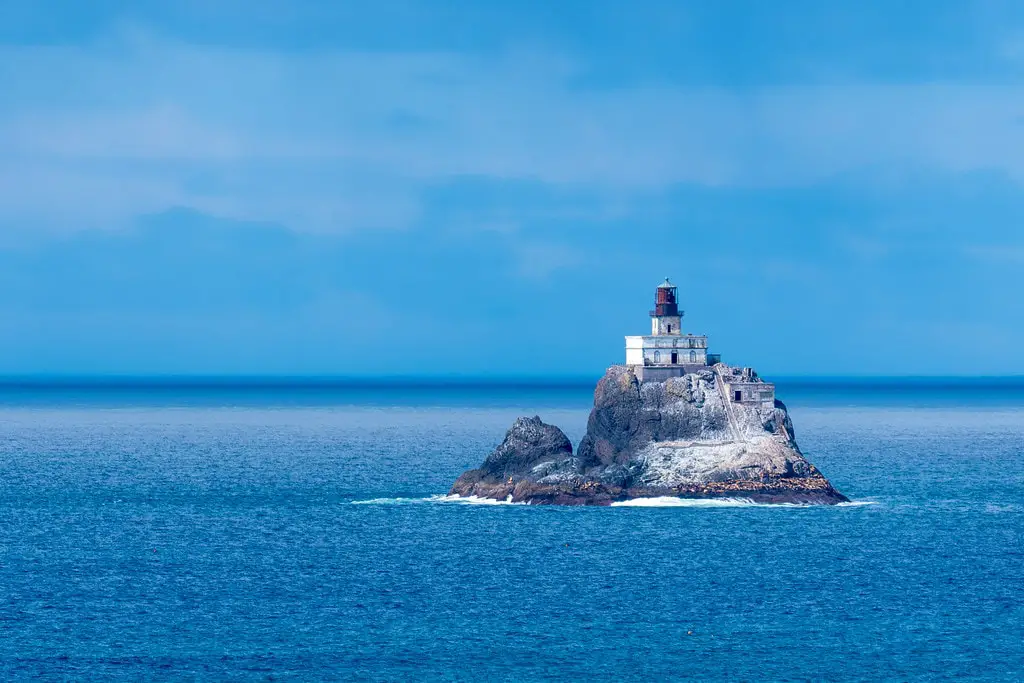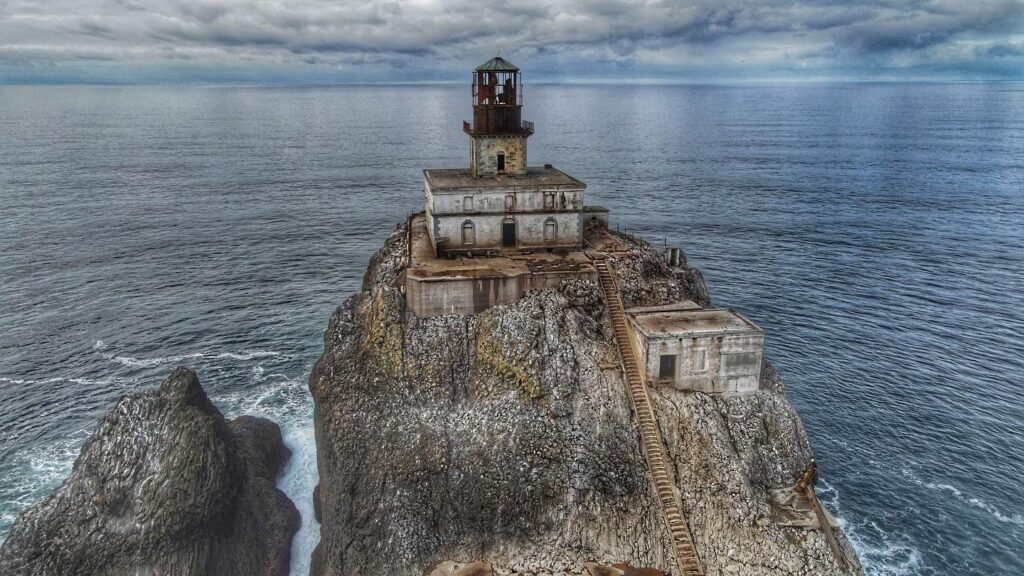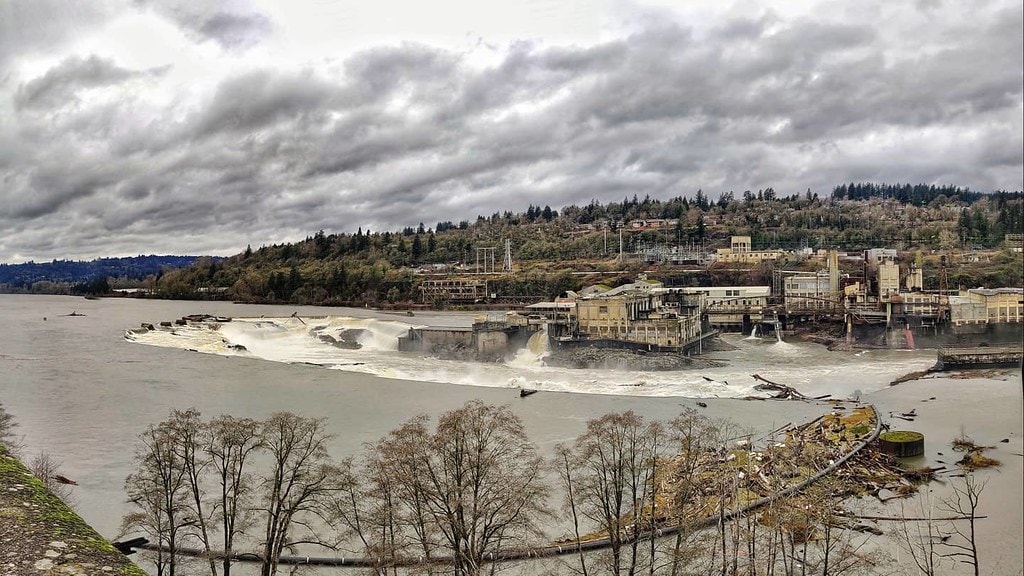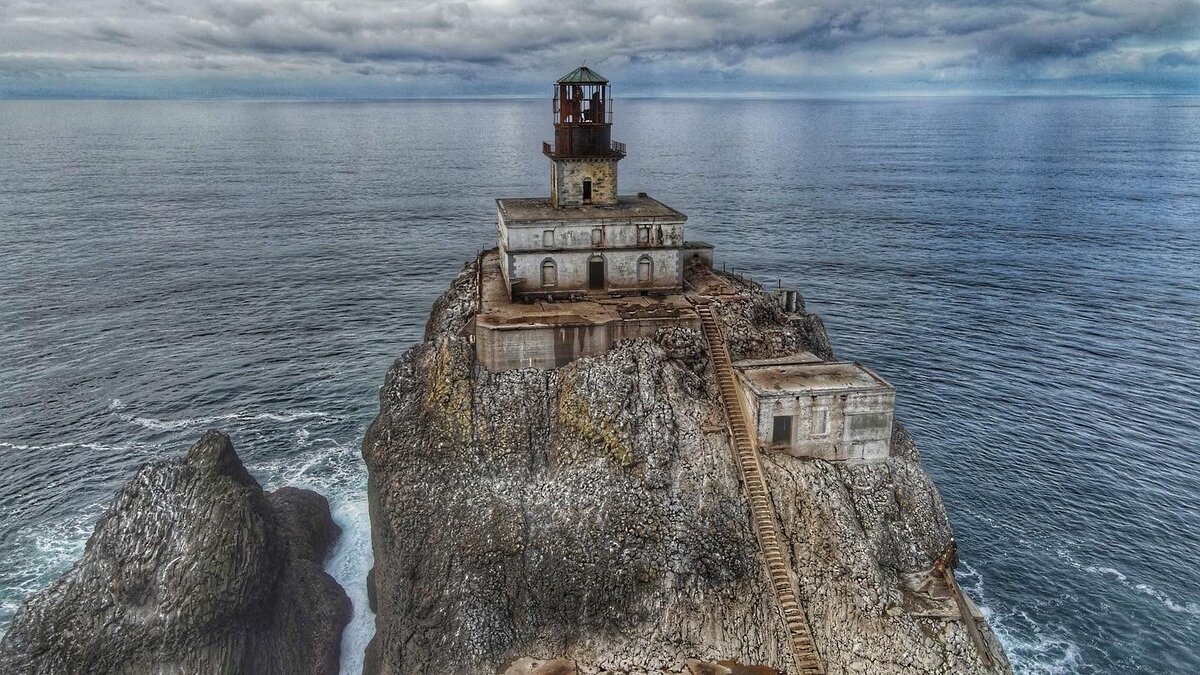Out at Sea, on a Rock: The Light They Almost Didn't Build
Tillamook Rock Light, the one locals still call "Terrible Tilly," wasn't meant to go out there at all. The original plan called for a more sensible spot inland, but fog, height, and visibility ruined that idea fast.
What came next was a project defined by storms, accidents, and more than one blunt reversal. The result still sits 1.2 miles offshore from Tillamook Head, south of Seaside, Oregon.
For anyone scanning the coast for forgotten landmarks or unusual things to do in Oregon, the story begins in 1878.
When Congress Wanted a Light, and Fog Said No
In 1878, the United States Congress approved $50,000 to construct a lighthouse near Tillamook Head.
The location seemed practical - high elevation, prominent line of sight - but that height, close to 1,000 feet, came with near-constant fog cover.
Officials deemed it useless for warning ships. A new site was needed, and a hard basalt slab offshore became the fallback option.
That fallback was Tillamook Rock.
Survey work began in 1879. H.S. Wheeler and his cutter, Thomas Corwin, struggled to land equipment.
The first team barely managed to set foot on the rock.
During a second try, Wheeler used a tape line to drag surveying tools across the uneven surface.
He reported that the top needed blasting, and the budget wouldn't cover what came next.
September brought another survey attempt. This time, John Trewavas led the crew.
Trewavas had worked at Wolf Rock in England, but Tillamook Rock was different.
Swells overtook his landing party. He vanished into the ocean during the approach and was never recovered.
Public reaction to his loss was swift and negative.
Local resistance mounted. His successor, Charles A. Ballantyne, struggled to hire workers.
Eventually, he found quarrymen unfamiliar with Trewavas or the headlines.
Work resumed under tight conditions. In May 1880, enough of the rock had been blasted flat for foundation work to begin.
By then, the project was behind schedule and over budget. But construction continued.
Engineering Past the Point of Sense
By May 1880, work crews had cleared enough surface to pour a foundation.
What followed was over 500 days of hard labor, fought out on a rock barely an acre in size.
Construction crews worked under the direction of the U.S. Army Corps of Engineers, led by George Lewis Gillespie Jr.
The logistics were blunt: supply ships stayed offshore, using a derrick line and breeches buoy to swing materials across rough surf.
If the line snapped, delivery stopped.
The tower rose 62 feet, anchoring into the blasted basalt.
Attached quarters sheltered keepers, though not much comfort.
The Fresnel lens inside the lantern was a first-order type, one of the largest available, and sat 133 feet above sea level.
A steam foghorn backed it up, standard for the era.
When the lamp finally lit on January 21, 1881, it cast steady light for 18 miles.
That was the number logged - 18 miles - but performance varied wildly in foul weather.
The final construction cost came in at $125,000. In today's dollars, that would clear $4 million.
At the time, Tillamook Rock Light was the most expensive lighthouse ever built on the West Coast.
That record would later fall to St. George Reef Light, off northern California, but only after similar setbacks and storm damage. Tillamook got there first.
For a structure no one had originally wanted in that location, it turned into one of the most complicated builds of its kind.
Even before it opened, it had a name. Locals were calling it "Terrible Tilly."

Running the Light in the Eye of the Storm
Terrible Tilly went into service in January 1881, staffed by four keepers.
Their duty cycles ran long, isolated, and unpredictably.
The only access was from the sea. Landings depended entirely on weather and surf - miss the right window, and supplies didn't arrive.
The lighthouse earned its nickname quickly, not through PR, but through rain, waves, and debris battering it without warning.
In 1897, a telephone line was installed to improve contact with the mainland.
It didn't last. One of the region's frequent storms shredded the connection shortly after it went live.
That pattern held. Technology reached the rock, but didn't stay long.
The worst storm hit on October 21, 1934. Wind speeds reached 109 mph.
Waves launched boulders that shattered the lantern room and destroyed the original Fresnel lens.
Railings collapsed. The derrick failed. Communication went dark.
Keeper Henry Jenkins built a temporary radio from broken foghorn and phone parts - one of the few times that sort of improvisation actually worked.
Repairs took until February 1935 and cost $12,000.
Crews installed an aerobeacon in place of the Fresnel, added metal mesh to shield the tower, and reinforced the windows with portholes instead of glass panes.
By that point, structural erosion was also underway.
In 1912, a storm had already shaved off 100 tons from the west end of the rock.
No upgrades could change the working conditions. The isolation remained. So did the weather.
Keepers rotated in and out, often worn thin. Some didn't return for the second tour.
Others were pulled mid-assignment.
Deactivation, Deals, and a Post-Lighthouse Pivot
Tillamook Rock Light went dark in 1957. The final keeper, Oswald Allik, later closed out his career at Heceta Head Light.
By then, Tilly had racked up decades of maintenance costs, storm damage, and difficult staffing.
When the U.S. Coast Guard decommissioned it, the light was replaced by a whistle buoy.
Cheaper to operate, easier to access.
What followed was an odd stretch of real estate turnover.
The federal government sold the property, and over the next two decades, ownership shifted through private hands.
In 1980, a group of Oregon realtors acquired the site with a pitch that caught public attention: a columbarium in the Pacific.
They called it Eternity at Sea.
It opened that June. By 1999, the Oregon Mortuary and Cemetery Board revoked the license.
The site had accepted about 30 urns. When owners reapplied in 2005, the application was rejected.
The facility has remained closed ever since.
Access remains restricted. Landing a boat is nearly impossible in most conditions.
Helicopter transport became the only practical method, but even that is limited.
During nesting season, the site is off-limits by regulation.
It's part of the Oregon Islands National Wildlife Refuge, which adds another layer of oversight.
In April 2022, the property was listed for sale again.
The buildings had deteriorated from exposure, with reported damage from sea lions, nesting birds, and salt corrosion.
The listing acknowledged the need for full renovation.
Tillamook Rock Light was back on the market - without utilities, road access, or consistent visibility from shore.
Federal Listings and Wildlife Claims the Rock
Tillamook Rock Light made it onto the National Register of Historic Places on December 9, 1981.
That designation followed 24 years after deactivation and more than a century since construction began.
The site now falls under the Oregon Islands National Wildlife Refuge, a designation managed by the U.S. Fish and Wildlife Service.
The rock itself sees more wildlife than people. Sea lions, seals, and seabirds dominate the landscape, especially during spring and early summer.
Common murres, cormorants, and puffins are among the nesting birds recorded on and around the structure.
The refuge limits human access during nesting cycles to reduce disruption.
Despite the federal listings, ownership remains private.
The structure is visible from several points on the northern Oregon coast, most clearly from Seaside, Cannon Beach, and Ecola State Park.
But there are no scheduled tours, no public landings, no onsite interpretive signs.
Most visitors learn about it by spotting it offshore - roughly 1.2 miles from Tillamook Head - or reading about the site at nearby visitor centers.
In terms of human use, the lighthouse now functions as a visual marker and little else.
The refuge rules, the rough water, and the offshore location have largely returned the site to wildlife.
The light is out. The rock stays.

🍀








